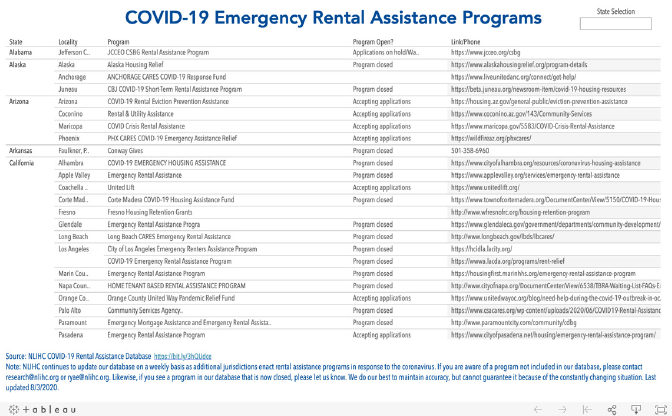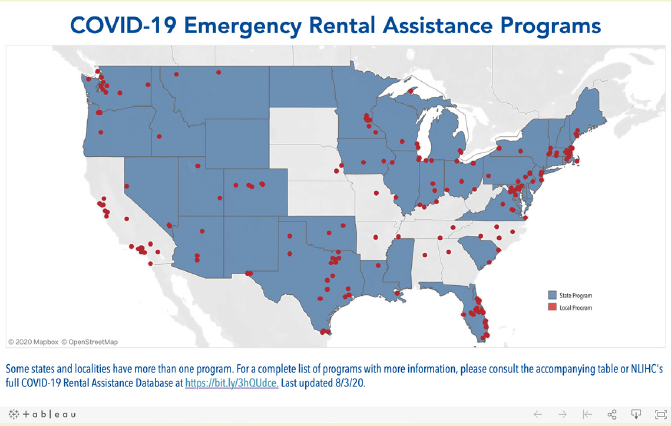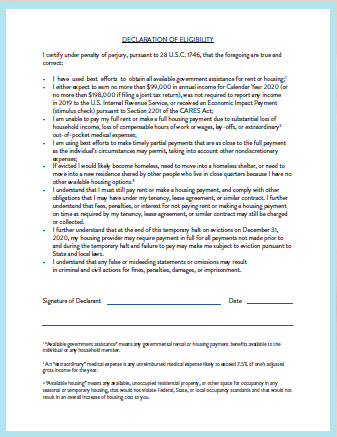The Centers for Disease Control and Prevention (CDC) recently released an eviction moratorium valid through the end of 2020. The moratorium prevents eviction proceedings for eligible renters who provide a signed declaration to their landlord. While the moratorium gives some breathing space for renters, current and past-due rent will still be due on January 1, 2021. Many tenants have been able to scrape by while skipping utility bills and food, using supplemental unemployment benefits, or applying for rental assistance. For many, however, the economic realities have not changed since the pandemic began.
For the past five months, NLIHC has been tracking state and local emergency rental assistance programs. Find a rental assistance program near you at: https://nlihc.org/rental-assistance
Common themes emerged in our analysis:
- Many programs require significant documentation to prove COVID-19 hardship. Only 29 programs allow tenants to self-certify that they meet eligibility requirements.
- Few programs target extremely or very low-income households. Fewer than two in ten programs using area median income (AMI) set their threshold at or below 50% AMI.
- Landlords are typically required to participate in some way in two out of three programs. Four in ten programs that require landlords to participate also ask landlords to make concessions such as not evicting tenants or forgiving a share of rent.
The need for assistance continues to surpass available funding, and programs fail to provide assistance for an adequate length of time. Due to high demand, one in four programs has already closed. Most programs provide only three months of assistance or less, even though the pandemic has already lasted more than six months. At least six in ten programs are forced to select which tenants will receive aid through lottery or first-come, first-served systems. More funding for rental assistance is urgently needed.
The “Emergency Rental Assistance and Rental Market Stabilization Act” would provide $100 billion for emergency rental assistance to assist households affected by the COVID-19 crisis and would address and prevent many of the shortcomings in existing state and local rental assistance programs. The HEROES Act and the “Emergency Housing Protections and Relief Act” include this urgently needed legislation. The House of Representatives has already passed both the HEROES Act and Emergency Housing Protections and Relief Act. The Senate has failed to act for months. Contact your senators and demand that they pass rent relief now: https://sforce.co/3kk2OFY
|
|
|


